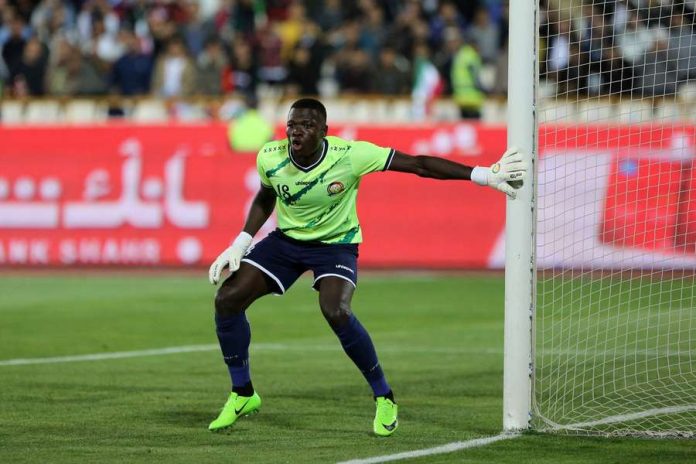The issue of match-fixing in Kenyan football has once again surfaced after two videos allegedly implicating experienced goalkeeper Patrick Matasi in a spot-fixing scandal went viral. These videos, widely shared on social media, have sparked intense debate over match manipulation and how such cases should be handled in a country that lacks specific laws criminalizing the act.
While the authenticity of the videos remains unverified, Kakamega Homeboyz Chairman Cleophas Shimanyula has defended Matasi, stating that he remains innocent until proven guilty and will continue playing for the team unless concrete evidence proves otherwise.
The Football Kenya Federation (FKF) is reportedly in possession of the videos and is expected to release an official statement on the matter. However, the bigger issue remains—how should match-fixing allegations be handled in Kenya, and what legal framework exists to address them?
To gain deeper insight into this issue, sports lawyer Japheth Munyendo shared his perspective, emphasizing FKF’s responsibility in combating match-fixing.
Is Match Fixing Illegal in Kenya?
Unlike other countries where match-fixing is explicitly criminalized, Kenya does not have specific laws addressing the issue. Countries such as Australia and the United Kingdom have legal frameworks that define and penalize match manipulation, including criminal charges, fines, and prison sentences for offenders.
In Kenya, however, match-fixing is not covered under national laws, leaving the responsibility of handling such cases to sports federations. FKF, as the governing body of football in the country, has regulations that allow it to investigate and penalize individuals involved in match manipulation.
Goalkeeper Patrick Matasi. #FootballKE pic.twitter.com/eH79oozLdK
— Ole Teya (@TeyaKevin) March 26, 2025
Munyendo believes FKF must act decisively to address this issue using the existing FKF Anti Match Manipulation Regulations of 2016.
“All jurisdiction regarding Kenyan football lies with FKF, and it is within their mandate to use their existing statutes to kick on with the case,” he said.
“The first step for FKF, if convinced that there is wrongdoing, is to suspend the player and subject them to a disciplinary process. If found guilty, the player can be fined, banned, or both. If they are not satisfied with the verdict, they can appeal, and if the appeal is unsuccessful, the case can proceed to the Sports Dispute Tribunal (SDT) and, if necessary, the Court of Arbitration for Sport (CAS).”
How FKF Statutes Address Match Fixing
Investigation Process
According to Regulation VII of the FKF Anti Match Manipulation Regulations, any report of match-fixing must be referred immediately to the FKF Integrity Department for investigation. The process involves:
-
Interviewing relevant witnesses.
-
Reviewing documentation, including video evidence and financial records.
-
Analyzing any other material evidence.
If the FKF Chief Executive Officer (CEO) believes there is reasonable evidence of match-fixing, the case is forwarded to the FKF Disciplinary Committee. At this stage, FKF also has the authority to suspend the accused player provisionally while investigations continue.
“The FKF CEO has the power to impose a provisional suspension if they believe there are reasonable grounds to suspect match manipulation,” Munyendo explained.
This silly mistakes shows Matasi has been betting pic.twitter.com/xP9Ixiz4Bz
— Peter Ouma (@PeterOu2024) March 27, 2025
Possible Penalties for Match Fixing
Upon completion of investigations, the FKF Disciplinary Committee determines appropriate sanctions. Section XVIII of the FKF statutes stipulates:
-
A minimum five-year ban from football.
-
A fine of at least Ksh. 1,000,000.
-
In severe cases, a lifetime ban from football.
The duration of investigations varies depending on the complexity of the case. While FKF regulations suggest a 90-day investigation period, delays have been observed in past cases.
Past Match Fixing Cases in Kenya
Despite FKF’s clear regulations, fixing game cases in Kenya have often not been handled effectively.
In 2023, three individuals accused of match-fixing were taken to court but were released on bail. No significant action was taken by FKF, and the suspects were not officially banned from football.
Munyendo highlighted a major loophole in FKF’s enforcement of its own rules.
“At FKF level, the Anti-Manipulation Regulations have been lying idle,” he said. “At times, they have been invoked selectively—either as a shield or a sword.”
Challenges in Enforcing Match-Fixing Laws
A key challenge in addressing match-fixing in Kenya is the lack of collaboration between FKF and law enforcement agencies. In other countries where game manipulation is a criminal offense, investigations involve the police, financial regulators, and other authorities to track suspicious activities and prosecute offenders.
“In Kenya, investigations should involve tracking money trails, corroborating video evidence, and working with law enforcement agencies,” Munyendo stated. “That, combined with getting credible witnesses to testify, is the best way to uncover the truth in such cases.”
What Next for Patrick Matasi and FKF?
With FKF expected to issue a statement, the football community is closely watching how the federation will handle the allegations against Matasi.
If FKF follows its own regulations, the next steps should include:
-
Launching an official investigation through the FKF Integrity Department.
-
Reviewing the video evidence and interviewing key witnesses.
-
Examining financial transactions linked to the accused.
-
Suspending Matasi temporarily while investigations proceed.
-
Determining appropriate disciplinary action if found guilty.
This case presents a crucial test for FKF. How the federation handles it could set a precedent for future match-fixing allegations in Kenyan football.
As stakeholders await FKF’s decision, it remains clear that Kenya needs stronger legal frameworks to effectively combat match manipulation. Until then, FKF must fully enforce its own rules to protect the integrity of the game.
READ NEXT:


